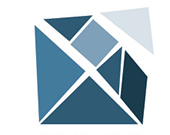Impaired mobility
Experience report by Lukas Schiwy (student at the University of Cologne)
I am Lukas Schiwy and I am studying Business Administration at our university in my second master semester. I also completed my Bachelor's degree here in Cologne. Besides my studies, I am a sitting volleyball player in the German national team. So my everyday study life consists of two important pillars: sports and learning.
Inevitably, it is often difficult to get studies and sports in a suitable time frame. The Unifit, which is part of the university sports program, helps me to build a bridge between the two. On the one hand, the short distances on campus allow me to integrate my strength units very well into my individual timetable. On the other hand, the dedicated employees of the "Fitness Faculty" mediate between me and the chairs if I cannot attend a course in full, e.g. due to a tournament abroad.
In everyday life I am dependent on a wheelchair due to my disability, which is a problem in many ways when training in the Unifit. Although I can compensate the two small steps at the entrance very well by a little detour across the meadow, the access to the toilets and changing rooms is only accessible via several steps. But even this can be avoided relatively easily by showing up for training already moved. On the training area, all equipment is easily accessible with a wheelchair. Only the free weight area, which is located on the second floor, is not accessible for me. Nevertheless, a full body workout is possible without any problems.
As an athlete I was particularly impressed by the professionalism with which the new members are introduced to the training programme. Thus, the introductory course (also for professionals) conveys all elementary knowledge of weight training. At the end of the introductory course there is an individual training plan, which is exactly tailored to the training goals of the members. I would also like to emphasise the openness and helpfulness of the Unifit. In spite of the above-mentioned limitation in accessibility, I can still recommend the Unift for people with disabilities. So feel free to drop by and maybe I'll see you next time at the training area.
Before and after the training units I try to attend every classroom event. The first thing I always have to clarify is whether the lecture hall in question is accessible for me without barriers. Already when trying to attend an event in auditorium 1, it is clear that initiative is required. Although the access to the corresponding lecture hall is steplessly accessible by a small elevator, all rows of seats are only accessible via some stairs. Conversely, I also had to realize that the stage opposite the rows of seats is also not accessible as a wheelchair user when I was the only one to be awarded my envelope in front of the stage during the ceremonial presentation of my Bachelor's degree.
In my everyday life at university, I often come across these well-intentioned, but usually not fully thought-out, approaches to achieving accessibility. For example, there are stair lifts in the WiSo tube, which are intended to help wheelchair users to bridge several small flights of stairs. Everyone who has ever enjoyed using these lifts knows about the ordeal of time and the life of these platforms. "Lukas I'm going to get a coffee, okay?", it is often said when I take out the Euro key to activate the control element. It is not unusual for the coffee to be upstairs in front of me.
Now one could well ask oneself why, in my situation, one didn't immediately choose another university when so many hurdles weigh down the ease of everyday life? Quite simply - that is exactly why! I am lucky to have a certain level of fitness despite my physical handicap, which enables me to overcome each and every one of these hurdles and thus pave the way.
In the everyday life of every single person with disabilities there are these hurdles, which do not even stop at university. Therefore it is up to us to design things in such a way that we build bridges out of original stones - because that is the core of inclusion. For me, the University of Cologne embodies this idea of togetherness and cooperation, with the knowledge that it is not yet perfect. But I am sure that we are on a good path, at the end of which disabilities will no longer play a role.
Your Lukas Schiwy
